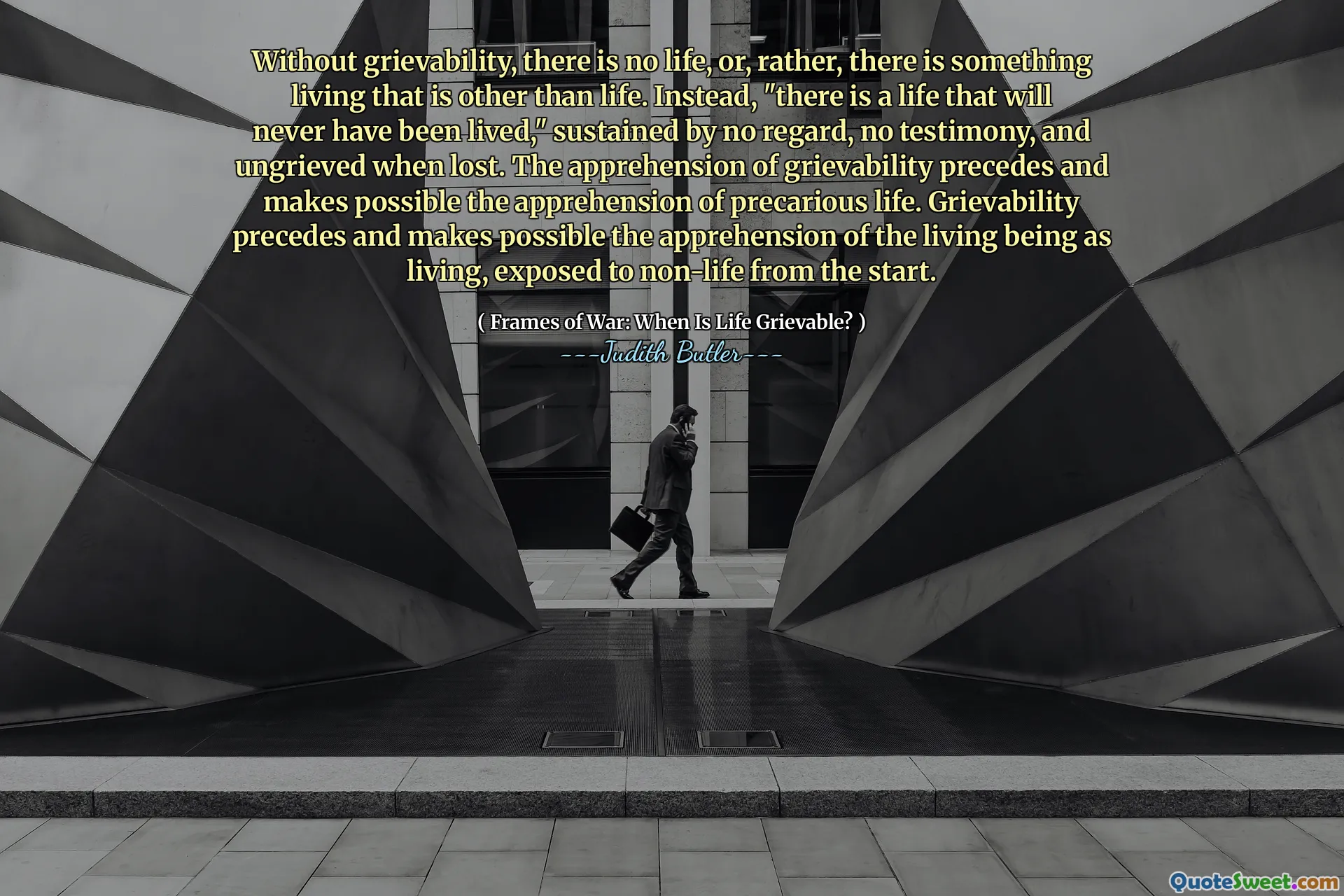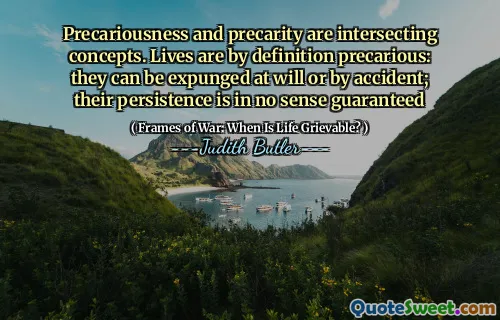
没有磨难,就没有生命,或者,有些生活除了生活之外。取而代之的是,“有一种永远不会过的生活”,没有任何关心,没有证词和失去的人。对磨损性的忧虑在于不稳定生活的恐惧。磨难先于生存生命的恐惧,并使其成为可能,从一开始就暴露于非生命。
(Without grievability, there is no life, or, rather, there is something living that is other than life. Instead, "there is a life that will never have been lived," sustained by no regard, no testimony, and ungrieved when lost. The apprehension of grievability precedes and makes possible the apprehension of precarious life. Grievability precedes and makes possible the apprehension of the living being as living, exposed to non-life from the start.)
朱迪思·巴特勒(Judith Butler)强调了对生命本身的理解至关重要的可怕性概念。没有悲伤的能力,存在的东西就无法真正被视为生活。取而代之的是,它仅仅是缺乏价值的存在。无法识别或承认的生活被认为是从未真正过的生活,这表明承认损失和哀悼能力是我们对生存的理解的基础。
巴特勒(Butler)认为,悲伤的能力促进了人们对持持持押权的意义的更深入的理解。磨难使我们能够感知生命是真正活着的生物,从而强调了存在的固有脆弱性。从一开始,生活就会与可能的损失潜力交织在一起,并且认识到这种关系对于解决经常被忽视或不可评估的生活的价值至关重要。







